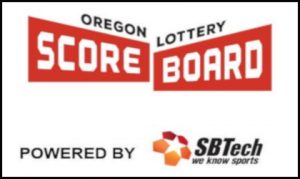In Oregon and lottery officials are reportedly due to reveal that the new Scoreboard mobile sportsbetting service launched in October is on course to lose nearly $5.3 million over the course of its first nine months in business.
According to a Monday report from the Willamette Week newspaper, the Scoreboard app is run by the Oregon State Lottery utilizing technology from SBTech Malta Limited and offers punters physically located within the western state the ability to place bets on a wide range of professional sports such as action from the National Football League (NFL) and Major League Soccer (MLS).
Collegiate embargo:
The newspaper reported that state lottery officials had initially predicted that the Android and iOS-friendly advance would bring in about $6.3 million over the course of its first year despite the fact that it does not allow wagering on non-professional sports such as those organized by the National Collegiate Athletic Association (NCAA).
Red result:
However, this projection has now seemingly proved false with Barry Pack, Director for the Oregon State Lottery, reportedly set to officially detail later today that the Scoreboard innovation will be some $11.6 million short of its initial forecast when the jurisdiction’s current fiscal year ends on June 30.
Shortfall suggestion:
The Willamette Week reported that Oregon State Lottery officials had earlier used their January meeting to warn that the Scoreboard sportsbetting app was not bringing in as much money as they had expected and would be unable to meet its first-year handle prediction of approximately $300 million.
Reportedly read a January statement from the Oregon State Lottery…
“Original projections have been revised downward to reflect evolving estimates around black market capture rate, lack of NCAA wagering, tax withholding, intrastate competition, margin and product technical issues.”
Legislative lethargy:
Matt Shelby, a spokesperson for the Oregon State Lottery, reportedly told the newspaper on Wednesday that the Scoreboard app had experienced higher-than-expected start-up costs and was additionally being hamstrung by its inability to offer wagering on collegiate sports.
Shelby reportedly told the newspaper…
“The ability to offer collegiate wagering would speed our progress towards profitability, increasing revenues with very little additional expense, but there doesn’t seem to be much appetite for that in the legislature.”



